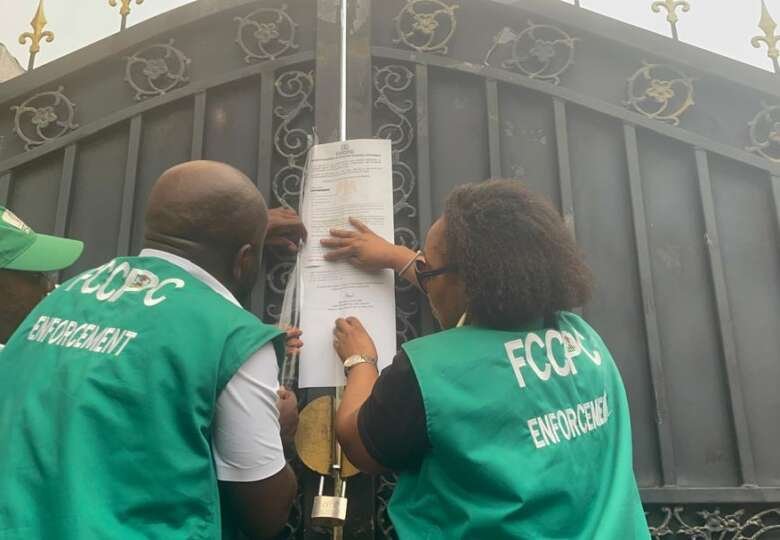
The House of Representatives on Thursday passed through Second Reading a bill seeking to release five percent of the revenue accruing from electricity generated by Generating Companies (GENCOs) directly to host communities.
The private member bill titled: ‘A bill for an Act to amend the Electricity Act, 2023 to address concerns of host communities and for related matters’ was sponsored by Hon. Babajimi Benson (APC-Lagos).
In his lead debate, Hon. Benson stressed the need to address some of the lacuna observed in the extant law, specifically the exclusion of Igeregu power plant from the schedule of the 19 GENCOS.
He said: “going through the bill, there are 19 GENCOS in Nigeria but the bill omits one, and the one omitted is Igeregu power plant.
“My request is that we include Igeregu in the schedule of the GENCOS we have in Nigeria.
“Secondly and the most important one, the host communities that are cited that percentage of the revenue from the GENCOS companies apply directly to the host communities themselves.
“However, what the bills says is that the amount earmarked for host communities development should be sent to HYPADEC which is hydro producing area agency. So, I do not think that is appropriate.
“So, I’m requesting that sections 95(2c and d) be deleted accordingly,” Hon. Benson urged.
In his remarks, Deputy Speaker, Hon. Benjamin Kalu who presided over the plenary, observed that the extant Act empowers the authority to transmit and distribute electricity.
He however noted that: “This move represents a significant departure from the previous centralized system currently allowing states to take charge of the electricity and fostering the development of renewable energy projects.
“The Electricity Act reviews the electricity power reform sector signed by former President Olusegun Obasanjo in 2005.
“The Electricity Act 2023 consolidates the various electricity laws in the power sector.
“Some of these laws are the hydro electric power producing like he rightly pointed out.
“The Nigerian Electricity Management Services Act, 2015 and all that, in addition, the Act sets out like he mentioned five percent of all revenue accruing from the power generated by the various power generating companies in Nigeria, the GENCOS.
“This is important for us to reiterate by the House by this amendment so seriously because it is timely especially for the host communities.
“For me and the House, and the leadership of this House, it appears to us a grand breaking position with the Act.
That is the creation of state electricity market.
https://googleads.g.doubleclick.net/pagead/ads?gdpr=0&us_privacy=1—&client=ca-pub-1896573800096815&output=html&h=188&slotname=1546198614&adk=2058827678&adf=2065757895&pi=t.ma~as.1546198614&w=750&fwrn=4&lmt=1689925726&rafmt=11&format=750×188&url=https%3A%2F%2Ftribuneonlineng.com%2Freps-support-releasing-5-electricity-revenue-to-host-communities%2F&host=ca-host-pub-2644536267352236&wgl=1&uach=WyJtYWNPUyIsIjEyLjYuNyIsIng4NiIsIiIsIjExNS4wLjU3OTAuOTgiLFtdLDAsbnVsbCwiNjQiLFtbIk5vdC9BKUJyYW5kIiwiOTkuMC4wLjAiXSxbIkdvb2dsZSBDaHJvbWUiLCIxMTUuMC41NzkwLjk4Il0sWyJDaHJvbWl1bSIsIjExNS4wLjU3OTAuOTgiXV0sMF0.&dt=1689926231462&bpp=5&bdt=1266&idt=2051&shv=r20230719&mjsv=m202307170101&ptt=9&saldr=aa&abxe=1&cookie=ID%3D9da86508d7ccbc61-22b52cd4a4e1002e%3AT%3D1687166682%3ART%3D1689926228%3AS%3DALNI_MbtqsTNdv6tgBkEAIb_AI2LGKM9tw&gpic=UID%3D00000c51852c2b22%3AT%3D1687166682%3ART%3D1689926228%3AS%3DALNI_Ma1Pbch0wb-Za3jRrVdrZNsHcWrBQ&prev_fmts=0x0%2C728x90%2C750x188%2C300x600%2C345x280&nras=1&correlator=5569518640138&frm=20&pv=1&ga_vid=805872792.1687166681&ga_sid=1689926232&ga_hid=94975401&ga_fc=1&ga_cid=19320531.1689757099&rplot=4&u_tz=60&u_his=4&u_h=800&u_w=1280&u_ah=713&u_aw=1280&u_cd=24&u_sd=2&dmc=8&adx=30&ady=3980&biw=1200&bih=521&scr_x=0&scr_y=1956&eid=44759837%2C44759926%2C44759875%2C31076087%2C31076172%2C44788442%2C44795912%2C31076286&oid=2&psts=ABnkTfCcAENnTKoYEP6w3Vev-Fb_VAwTyBzPgv3C1gQhYhMJqBzGips9Aq_M7cY5kh7g_VNqpD4z-WIIZNjXP61U6HJH%2CABnkTfA9wM0bQcsMeWuewE1P02oyEBUGyjiVI_PuwKR1Ee_GRAvPt-C5KjT_7JjjmgUkOB-WTHr5mfp9-afTqOGO0p5z%2CABnkTfB8JtDBKwWMWsLMla_vdHD1teOC7Y_pgCgHBPCpQJuxQdAjDrWeUvJZosttOON7HJ7iY8031avkEAyIptrgqcy-8A%2CABnkTfAG-MCg_fa-fAGI2tSrqoPQgE1712csfTL6knqgRxUoQFEsl4k4uWOQrRRMzIJILyiqpLwxGJ29u8gmpPPXf_YQZGQg&pvsid=1653289778834392&tmod=775739645&uas=1&nvt=1&ref=https%3A%2F%2Ftribuneonlineng.com%2F&fc=1920&brdim=66%2C35%2C66%2C35%2C1280%2C25%2C1200%2C663%2C1200%2C521&vis=1&rsz=%7C%7CeEbr%7C&abl=CS&pfx=0&fu=128&bc=31&ifi=4&uci=a!4&btvi=4&fsb=1&xpc=vI7762GruN&p=https%3A//tribuneonlineng.com&dtd=69592
“Previously the state electricity market was regulated by the Federal Government but now with this decentralization, it will empower state the greater control of the electricity system.
“It paves the way for decentralized decision making and the realization of state specific renewable energy initiative,” Hon. Kalu noted.




